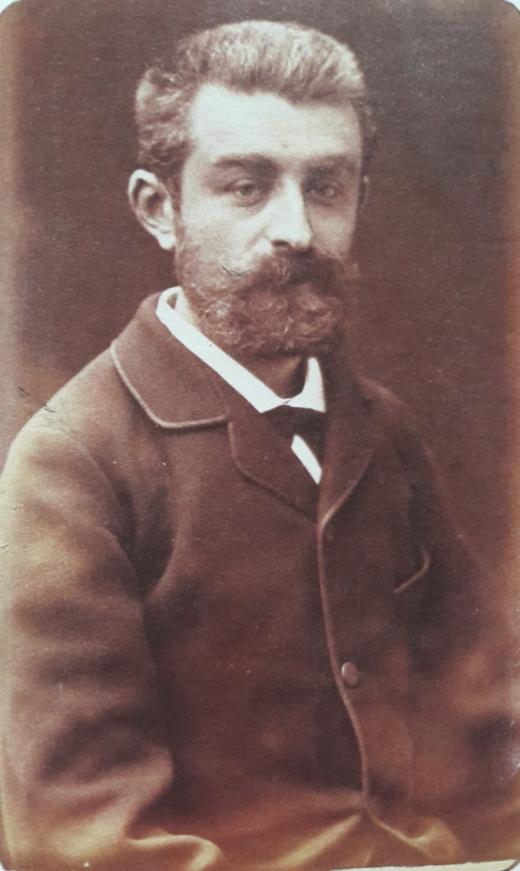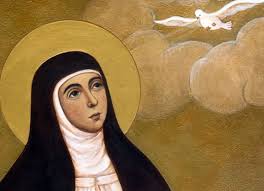And as he spoke the despairing words, “My God, my God, wherefore is my spirit heavy, and why dost Thou afflict me?” the priest was indeed the image of Jesus suffering on the hill of Calvary; but the man remained in the celebrant—the man, conscious of himself, and himself experiencing, in behoof of his personal sins and his own shortcomings…
Meanwhile his little acolyte had words of comfort, bid him hope; and after repeating the Confiteor in the face of the congregation, who on their part purified their souls by the same ablution of confession, the priest with revived assurance went up the altar steps and began the Mass.
Positively, in this atmosphere of prayers crushed in by the heavy roof, Durtal, in the midst of kneeling Sisters and women, was struck with a sense as of some early Christian rite buried in the catacombs. Here were the same ecstatic tenderness, the same faith; and it was possible even to imagine some apprehension of surprise, and some eagerness to profess the faith in the face of danger. And thus, as in a vague image, this sacred cellar held the dim picture of the neophytes assembled so long since in the underground caverns of Rome.
The service proceeded before Durtal’s eyes, and he was amazed to watch the boy, who, with half closed eyes and the reserve of timid emotion, kissed the flagons of wine and of water before presenting them to the priest.
Durtal would look no more; he tried to concentrate his mind while the priest was wiping his hands, for the only prayers he could honestly offer up to God were verses and texts repeated in an undertone.
This only had he in his favor, but this he had: that he passionately loved mysticism and the liturgy, plain-song and cathedrals. Without falsehood or self-delusion, he could in all truth exclaim, “Lord, I have loved the habitation of Thy house, and the place where Thine honor dwelleth.” This was all he had to offer to the Father in expiation of his contumely and refractoriness, his errors and his falls.
“Oh!” thought he, “how could I dare to pour out the ready-made collects of which the prayer-books are full, how say to God, while addressing Him as ‘Lovely Jesus,’ that He is the beloved of my heart, that I solemnly vow never to love anything but Him, that I would die rather than ever displease Him?
“Love none but Him!—lf I were a monk and alone, possibly; but living in the world!—And then who but the Saints would prefer death to the smallest sin? Why then humbug Him these feints and grimaces?
“No,” said Durtal, “apart from the personal outpourings, the secret intimacy in which we are bold to tell Him everything that comes into our head, the prayers of the liturgy alone can be uttered with impunity by any man, for it is the peculiarity of these inspirations that they adapt themselves in all ages to every state of the mind and every phase of life…. -J.K. Huysmans ‘The Cathedral’






Recent Comments